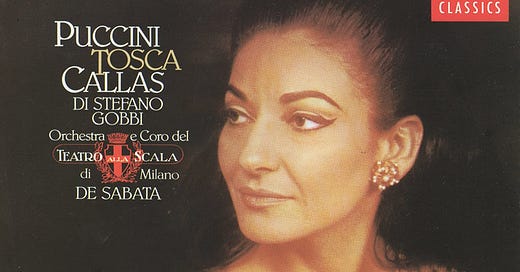Since long before John Milton wrote Paradise Lost, poets and novelists have confronted this problem: bad characters (like Satan, for example) are inherently more interesting than good ones (like God). They’re also often more fun, more complex, and more sensual.
And every once in awhile—in operas or Broadway musicals—they get songs they don’t necessarily deserve.
In Hadestown the eponymous character is king of the underworld which, in Greek myth, became synonymous with his name. Hades essentially lures people to his factory (as Hadestown in depicted in the musical) with the promise of protecting them from the deprivation and cold of the harsh world above. I think “Why We Build the Wall” was written before 2015, in which case it’s remarkably prescient, but it’s also a testament to the power and charisma of the authoritarian. Hades plays on the fact that his workers, his captors must believe that their oppression somehow makes them superior to those the wall keeps out because otherwise they’d have to face the enormity of what’s been taken from them and of what they’ve relinquished. The call and response between Hades and his abused and increasingly de-individuated workers, the cynicism of Hades and the intensity of the workers’ belief in the importance of their meaningless work, is stunning.
And that bass of Patrick Page as Hades is quite something.
I went through a Maria Callas phase in the 1990s and early aughts. I listened to almost every Giuseppe Verdi recording she made dozens of times (especially La Forze del Destino and Il Trovatore) but it was her recordings of Giacomo Puccini’s Turandot and especially Tosca (two of my favorite operas outside of Mozart) that I truly loved.
Tosca, a famous opera singer in Rome, is in a relationship with Cavaradossi, a painter and revolutionary. Scarpia, the corrupt chief of police who is in love with Tosca, knows she has nothing but contempt for him but that only spurs him to find a way to win her away from the man she truly loves. When Scarpia discovers that Cavaradossi is harboring a political prisoner he plans to trick Tosca into revealing her lover’s involvement. Then, after Scarpia arrests Cavaradossi, he will give Tosca a choice—if she agrees to become Scarpia’s lover, he’ll free Cavaradossi; otherwise Scarpia will make sure Cavaroadossi dies.
While devising his plot, Scarpia sings this aria in which he reveals his longing for Tosca. His desperation is so deep and painful (if twisted and delusional) that this song—at least until the end—almost makes you feel sorry for him.
[N.B.—The best recording I’ve found of Tosca is directed by Victor De Sabata. Tito Gobbi sings Scarpia in that one as well. You can listen to the whole thing here.]
BONUS TRACK
“Superstar,” Judas’ final song in the Andrew Lloyd Weber and Time Rice musical Jesus Christ Superstar, isn’t beautiful but it’s a blast—funny, clever, and irreverent. As sung by the great Murray Head, who took Ben Vereen’s place for the original cast recording, Judas is one of the great characters in musical theatre. I love Ben Vereen but I literally cannot imagine a better Judas than Murray Head.







Another great musical trip! What a wonderful idea to have the bonus track be Murray Head! I heartily agree Mary! A great offering ahead of the Easter holiday! Happy Easter to you and yours! (PS: I wore out my first copy of Jesus Christ Superstar! — Don’t forget Yvonne Elliman)
Thank you, Mary, for your Twofer Tuesday post. I thought because of your Tuesday night's Live YouTube Strategy Session you were not doing this musical post anymore.
I enjoyed your new and different musical selections. You are gratefully expanding my musical horizons!